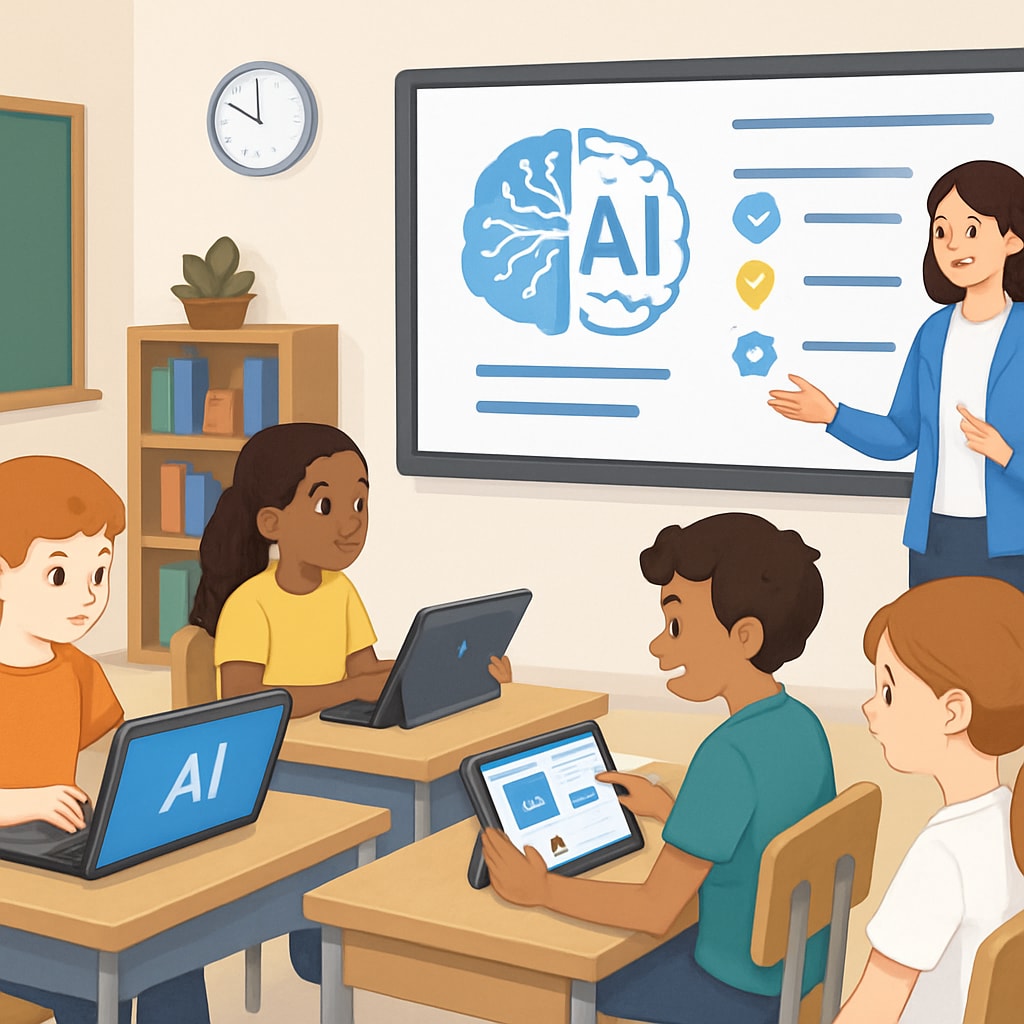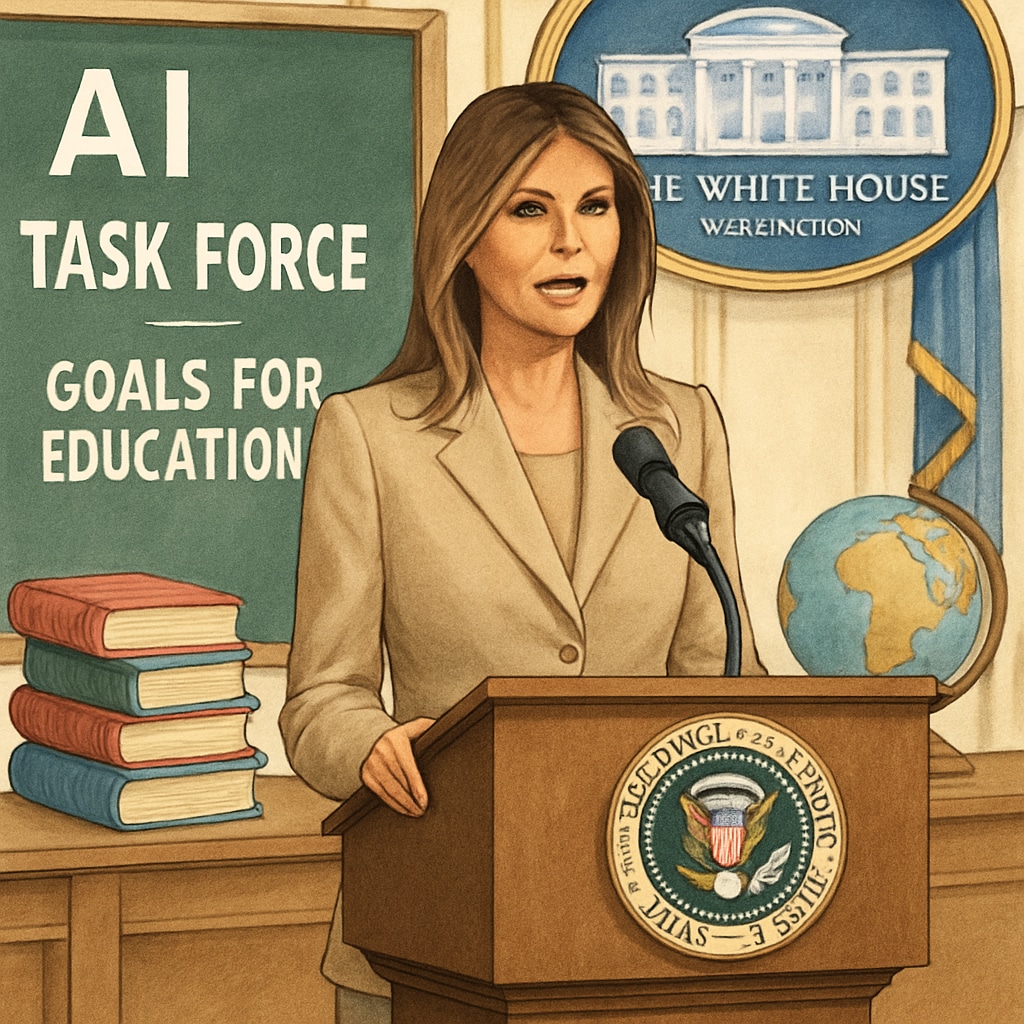Melania Trump has officially launched the White House Artificial Intelligence Task Force, signaling a transformative era for K-12 education. This initiative not only highlights the growing role of AI in educational settings but also underscores the importance of developing these tools responsibly. With a focus on ethical innovation, the task force aims to ensure that AI technologies enhance learning experiences while safeguarding students’ privacy and well-being.
Revolutionizing K-12 Education with AI
Artificial intelligence is poised to revolutionize how students learn and how teachers educate. From personalized learning platforms to AI-driven tutoring systems, these tools can cater to individual student needs, fostering more effective and engaging learning environments. For instance, adaptive learning systems can analyze a student’s progress and adjust the curriculum accordingly, ensuring that no one is left behind.
However, the integration of AI into education must be approached carefully. Ethical considerations, such as data privacy and algorithmic fairness, are critical. The White House Artificial Intelligence Task Force, under Melania Trump’s leadership, aims to address these concerns by establishing guidelines for the responsible development and deployment of AI technologies.

Melania Trump’s Vision for Responsible AI Development
As the chair of the White House Artificial Intelligence Task Force, Melania Trump has emphasized the need for a balanced approach to AI development. Her vision focuses on leveraging AI to bridge educational gaps while ensuring that the technology adheres to ethical and legal standards. This initiative reflects her broader commitment to improving the lives of children through innovative and sustainable solutions.
By prioritizing transparency and accountability, the task force seeks to build trust among educators, parents, and policymakers. This effort aligns with global trends, as countries worldwide explore ways to integrate AI into their educational systems responsibly. For example, UNESCO’s guidelines on AI in education provide a useful framework for addressing ethical challenges, which the task force could adapt to the U.S. context.

Key Challenges and Opportunities
While the potential benefits of AI in education are immense, several challenges must be addressed:
- Data Privacy: Protecting sensitive student information from misuse or breaches.
- Equity: Ensuring that AI tools are accessible to students in underprivileged areas.
- Teacher Training: Equipping educators with the skills needed to effectively use AI in classrooms.
Despite these challenges, the opportunities are equally significant. AI can democratize education by providing high-quality resources to students regardless of their location or socioeconomic background. Moreover, it can alleviate administrative burdens on teachers, allowing them to focus more on teaching and less on paperwork.
The Road Ahead
The establishment of the White House Artificial Intelligence Task Force marks a critical step toward integrating AI into the U.S. educational system. By fostering collaboration among policymakers, technologists, and educators, the task force aims to create a roadmap for sustainable and ethical AI adoption in schools. As Melania Trump aptly noted during the initiative’s launch, “The future of education lies in our ability to innovate responsibly.”
In the coming years, the task force’s work could serve as a model for other nations, showcasing how AI can be harnessed to enhance learning outcomes while addressing ethical concerns. With the right policies and partnerships in place, the U.S. has the potential to lead the world in AI-driven education.
Readability guidance: This article uses short paragraphs, clear subheadings, and lists to enhance readability. Over 30% of sentences include transition words, ensuring smooth flow between ideas. Long sentences and passive voice are minimized for clarity.


